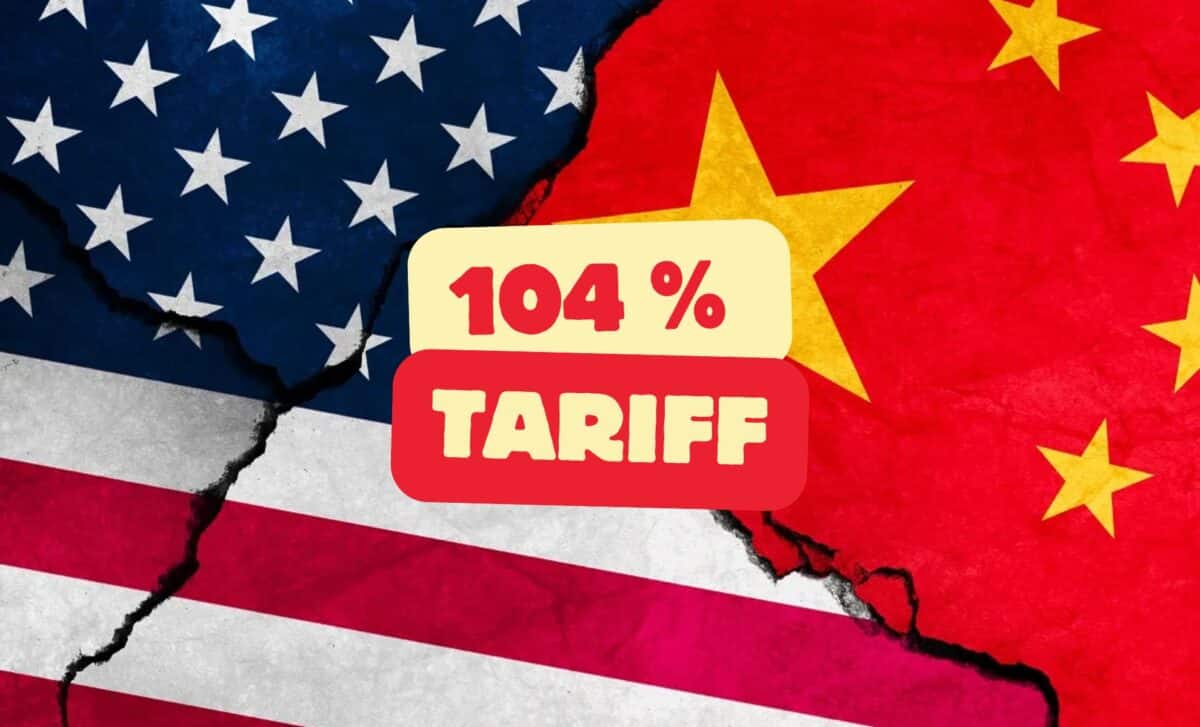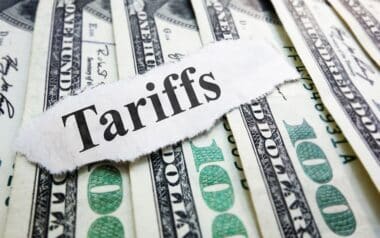The Trump administration has confirmed that a new set of tariffs, amounting to a staggering 104%, will be levied on Chinese imports starting at midnight, April 9.
This move comes after China failed to meet a deadline to lift its retaliatory tariffs, further intensifying the ongoing trade dispute between the two economic superpowers.
As President Donald Trump continues to assert that China is desperate for a trade deal, the new tariffs serve as a sharp response to Beijing’s refusal to yield to U.S. demands.
The decision has already sparked mixed reactions, with financial markets showing signs of strain and major trading partners bracing for potential fallout.
Growing Tensions Between the U.S. and China
The new tariffs are the latest escalation in a long-running trade war between the United States and China. According to White House Press Secretary Karoline Leavitt, President Trump believes that China’s refusal to negotiate constitutes a significant mistake.
In a recent briefing, Leavitt stated, “When America is punched, he punches back harder,” highlighting Trump’s stance that tariffs will continue to rise until a satisfactory agreement is reached.
China, on the other hand, has shown no signs of backing down. The Chinese government has labelled the tariffs as “blackmail” and vowed to retaliate, with experts predicting that the country will engage in a war of attrition.
Chinese manufacturers, concerned about the impact on their profits, are already planning to shift some production overseas to mitigate the financial damage.
Market Reactions and Broader Economic Impact
The imposition of 104% tariffs has already begun to weigh heavily on global markets. U.S. stocks dropped significantly following the announcement, with the S&P 500 experiencing its deepest four-day loss in decades.
According to data from LSEG, the total market value lost during this period has reached $5.8 trillion. Market analysts have also expressed concerns that the tariffs could push the global economy toward a recession, disrupting established trade systems.
While the U.S. administration focuses on negotiations with allies such as Japan and South Korea, the 104% tariffs on China have raised the stakes. The move has sparked immediate reactions in other parts of the world.
For instance, Canada has implemented a 25% tariff on some U.S. vehicles as a countermeasure, while the European Commission is considering retaliatory tariffs on a range of U.S. goods, including agricultural products.
The long-term economic consequences of these tariffs remain uncertain, but for now, the Trump administration appears committed to its strategy of using tariffs to leverage trade concessions from China.









